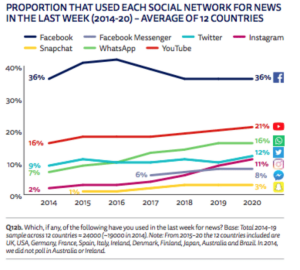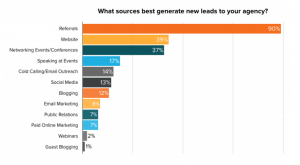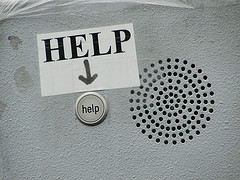From the infinite scroll of Facebook and Instagram to the temptation of a perfectly sunny day, there are a lot of distractions that prevent you from zeroing in on your work.
Turns out, human brains are in the moment for just over half of our waking hours—a sad 53%—according to a study from Harvard University. The other 47% of the time we’re zoned out, thinking of something else. Unfortunately, mind wandering can happen at inconvenient moments—like when your boss is giving a presentation and asks you a question.
Luckily, there are focus-forming habits you can adopt if you’d like to increase your attention span and focus for more than half of your day.
What we’re talking about when we say “attention” and “attention span”
Editor’s note: This section was written by Art Markman as part of previous Fast Company articles that have been archived.
We use the word “attention” as if it refers to a specific aspect of psychological or brain function. But in psychology, it’s a catchall referring to a variety of processes and mechanisms that influence what information from the world breaks through, gets processed, and affects your thinking.
One of these mechanisms is often called “executive attention,” which refers to the ability to consciously select particular things in the environment to process. As I sit here writing, for example, I am focusing on the text I’m writing and ignoring the second computer screen to my left, things on my desk, my cell phone, and the clock on the wall.
Our “attention span” is the amount of time that we can sustain that executive attention on a particular task—whether that’s writing a report, reading a book or article, or listening to a talk—before we get distracted or shift to something else we could be doing. Right now, for instance, I want to be writing, but there’s a knock at my door, so I will have to come back to it.
The modern work and information environments are so busy that it can be hard to sustain your attention for long, and that can make you less productive.
—Art Markman
What are some of the factors that influence our attention span?
Editor’s note: This section was written by Art Markman as part of previous Fast Company articles that have been archived.
Many people feel like their attention span is too short. They can’t stay focused on one thing for too long before they start doing something else. Increasing your ability to focus requires dealing with both internal and external factors.
Internal factors that affect attention span
Your own brain can lead you to shift from one task to another. Internal factors that influence attention span include:
External factors that affect attention span
Of course, the modern world is also full of things that draw your attention. External factors include:
—Art Markman
16 tips to increase your attention span
Editor’s note: Some of these tips (as indicated) are from Art Markman.
1. Create a strategic schedule
One of the biggest reasons for mind-drifting is idle hands and thoughts. It’s easier to find your flow if you create structure. Career expert and founder of Tipograph Careers Jill Tipograph recommends beginning each week with a deep dive into what needs to be accomplished. When in doubt, Tipograph says to schedule in more detail rather than less. “You will accomplish more and feel productive,” she says. Interruptions from colleagues, managers, and clients are bound to happen, so predicting to the best of your ability will ensure productivity.
Try to schedule calls and meetings back-to-back to better strategize your time. “It is interruptive to have calls and meetings throughout a day,” Tipograph says. “Block off certain days and times for meetings and calls, allowing the other parts of your day for work.”
2. Train your brain to check email etc. less often
To start, note how long you’re typically able to focus on one task and what tempted you to do something else. Then start trying to do those things a little less often and at longer intervals. If your desire to check email starts bothering you after 10 minutes of work, create a new schedule where you check email only every 30 minutes or every hour. The aim is to retrain your brain not to get in the way of your focused thought.
—Art Markman
3. Move distractors out of reach
A lot of attention span is driven by what is available in your environment to do right now. You’re more likely to play with your phone if it is out and at arm’s length than when it’s in another room. So park your cell phone somewhere out of reach when you’re working on something important and close the browser tabs that have your email and social media profiles.
In general, as you identify the factors that drive you to switch your focus from one task to another, you should strive to make desirable behaviors easy and undesirable behaviors hard. So you should move the most likely causes of shifts in attention out of your immediate vicinity.
—Art Markman
4. Remap your cues
As you get more sensitive to shifts from your current task to something else, you should also pay attention to the feelings you have just before you switch from one thing to another. For example, you might find that you check your email when you get a little frustrated with the task you’re doing. In that case, the feeling of frustration is acting as a cue that you use to trigger the behavior to shift your attention to something else.
Once you recognize those cues, practice associating them with a more desirable action. If you’re getting frustrated and want to look at your email, tell yourself to work on the task for five more minutes first.
This strategy has two advantages. First, if you put in an additional five minutes of work, you may actually figure out what’s frustrating you, get more deeply involved in what you’re doing, and make some progress. Even if you’re still frustrated or bored after five minutes and you take a break, you’ve remapped the cue from a signal to quit working to a signal to put in a little more effort. This way, you’ll expand the amount of time you can put in on challenges. And over time, you’ll stay focused even without having to think about it explicitly.
—Art Markman
5. Get enough sleep
More sleep will dramatically improve your performance, says career and branding expert Wendi Weiner, since you won’t be yawning your way through a blizzard of emails. “Being well rested will definitely help improve your memory and concentration alike, as a rested brain is a stronger brain,” she says. “Remain on a sleep schedule so that you train your body and mind to relax at specific points in the day and night.”
6. Figure out your most productive time of day
Perhaps you’ve heard of the philosophy behind chronotypes, which says that each person has a natural time of day they work best. Whatever your type, use those hours to get as much accomplished as you can. “If you happen to be an early riser, consider blocking out your schedule so you have time to get into a rhythm without anyone stopping by to chat over coffee,” Tipograph says. “Or if you tend to get the best ideas right before bed, keep a pen and paper on your bedside table so you can scribble down your brilliance.”
7. Meditate
Meditation is one of the best ways to improve your focus, since it’s essentially the mental training of your attention. Similar to the effect weight lifting has on your muscles, meditation trains your brain to stay at attention for longer periods of time. In a study conducted at the University of California at Santa Barbara, undergraduate students who took a mindfulness class and meditated for 10 to 20 minutes four times a week for two weeks scored higher on memory tests and exercises requiring attention than students who changed their nutrition as a way to boost brain power.
8. Exercise
Even a short brisk walk will do. A study from the University of Illinois found that physical activity increases cognitive control. Students with ADHD who participated in 20 minutes of moderate exercise were able to pay attention longer and scored better on academic achievement tests, especially in the area of reading comprehension.
9. Stay hydrated
Being dehydrated isn’t just bad for your body; it’s bad for your attention span. A study out of the University of Barcelona found that mild dehydration—as little as 2%—can negatively impact your ability to concentrate. So before you go into a situation where you need to focus, make sure you bring along plenty of water.
10. Sit “at the front of the classroom”
Students who want to excel make sure they have access to a teacher and the chalkboard, so they remain fixated, says Joy Altimare, CRO at Havas Media Network. The same philosophy applies in the workplace. “I have learned to position myself toward that presenter or closer to the screen,” she says. “It is a small trick that forces me to be engaged in the discussion, and in turn, requires me to be accountable in the meeting.”
11. Ask questions
Stay alert by planning to ask at least one good question, suggests Jon Acuff, author of Do Over: Rescue Monday, Reinvent Your Work and Never Get Stuck. Asking questions keeps you engaged and allows you to contribute to the conversation and learn something new. “Good questions give you information that helps you improve your job performance,” says Acuff. “Bad questions are those where you already know the answer or just want to look smart.”
12. Listen to music
Break out the Beethoven, because classical music helps you pay attention. A study conducted at Stanford University School of Medicine found that listening to short symphonies engages the areas of the brain involved with paying attention, making predictions, and updating the event in memory. While the music is helpful, it’s the short period of silence between musical movements when brain activity peaks.
13. Drink tea
Coffee might make you alert, but tea can help you pay attention. Black tea contains an amino acid called L-theanine, which has been shown to directly affect areas of the brain that control attention. A study in the Netherlands found that tea drinkers were able to pay attention and perform tasks better than those who were given a placebo to drink.
14. Take notes by hand
If you’re trying to pay attention in a meeting or at a conference, take notes using pen and paper. Researchers at Princeton and UCLA found that when students took notes by hand, they listened more actively and were able to identify important concepts. Laptops, on the other hand, provide easy distractions in the form of email or social media and typing can also lead to mindless transcription.
“It may be that longhand note takers engage in more processing than laptop note takers, thus selecting more important information to include in their notes,” writes Pam Mueller, coauthor of the study.
15. Take breaks
As much as we might like to have a swig of coffee and be able to zip through each and every deliverable without so much as a pause, it’s just not practical for most people. So give yourself a break—literally. Weiner says taking breaks can do wonders for your creativity and comprehension, especially if you’re digging through the nitty-gritty details of a brief or experiencing writer’s block.
Just keep it short and give it a purpose: “Taking a break to get the mail, grab a snack, or just stretch your legs can revitalize your energy,” she says. “Changing your environment after sitting in a chair reviewing a file or a document can also help expand your attention span.”
16. Practice—and give yourself grace
??The first week you attempt to lengthen your attention span, you might feel like you bombed it. But the next week? You’ll probably do a little better. Go easy on yourself, Tipograph says, and think of your attempts as rehearsals. “Think back to your preparation for the SATs: You took practice tests, having to get used to long periods of time of concentration,” she says. “You likely didn’t nail it the first time.”
Stephanie Vozza, Lindsay Tigar, and Art Markman contributed writing, reporting, and/or advice to this article.
(28)
Report Post








